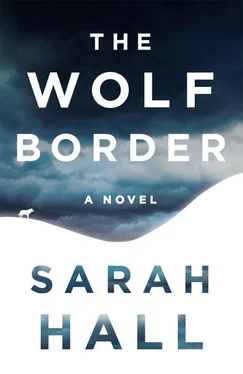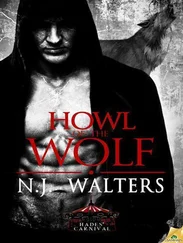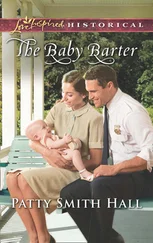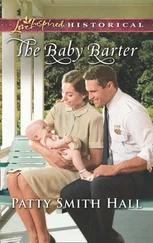The flight is uncomfortably bumpy, the helicopter lurches and swings in the stiff wind. Her anger keeps her focused and unafraid. They sweep over northern Cumbria, leaving the swathed massifs of the Lake District behind them. Villages. Small towns. There are passable rural corridors. They can slip through; she has confidence. The Solway shines on the horizon, and then is under them, patched by mudflats and sand. They are in range of Carlisle airport. The Gazelle flies lower than it should — she can see wading birds and geese, rivulets as water floods into and out of the neck of the former United Kingdom. Huib holds up the handheld receiver, talks to Thomas on the headset. She, too, has a signal on her device.
They find them a few minutes later, passing over the intermediate lands, the debatable lands as they once were. They are running over open moorland, the surviving five, driven hard by the noise of the helicopter. Ra leads them. She watches them run. She is rusty at targeting on the move, but could almost certainly tranquillise the breeding pair, were Thomas to hold the aircraft steadier. Instead, she watches and says nothing. They run in formation, arrow-shaped, the three juveniles keeping pace beautifully, strong now, and sleek. The helicopter flies above and then alongside them, and the animals disperse, each lighting out on an averse route. Separated, they run on across the moor, eyes ahead, grey fire across the border. There’s no meridian to mark the international crossing, no checkpoint, for all the rhetoric of the past year, just a smattering of whin and rowan, barren slopes and cuttings. The unspectacular lowlands stretch ahead, taupe and tan, and just below the helicopter, painted on the gable of a lone croft dwelling, in welcome or defiance, is a blue and white Saltire. The helicopter banks east, towards the capital.
*
It ends, as conflicts and dreams do, in a government committee room. The Earl lands at Edinburgh airport, and they are driven through the tall, sooted city to Holyrood. The new parliament building glints at the bottom of the Royal Mile, pale and angular, wharfs of glass and stylised windows jutting: a modernist vision for a modern state. Rachel takes a phone call from the Dumfries and Galloway police chief before entering the building — the woman assures her the animals will be monitored and protected throughout the Borders, and that there is much public support. Rachel thanks her. The words are reassuring but there will be other challenges. For all the reforms, and the possible protection, there are still powerful, absentee estate owners to contend with, sheiks and millionaires residing abroad whose compliance with the law is loose at best, who do not care about fines or penalties.
The others are waiting for her by the main public entrance. The views from inside Holyrood are spectacular — mountains, and the gothic pinnacles of the city. Huib and Sylvia take a seat on the benches nearby; Rachel and Thomas will have twenty minutes to address the situation, and find a solution. They are late and are ushered through to a light, pine-clad room. Around the table: representatives from the National and John Muir Trusts, the Forestry Commission, and the National Farmers’ Association. Sitting at the head, leafing through papers and ignoring everyone, the Scottish Prime Minister, Caleb Douglas, and next to him his new environment minister. Douglas glances up.
Evening, Thomas.
Hello, Caleb. I do appreciate you seeing us at short notice.
The Prime Minister looks down again at his sheaf of papers.
Needs must. This is a live issue, unfortunately.
Rachel and Thomas take their seats. Introductions are quickly made. Caleb Douglas barely looks at her when her name is given, though he reaches across the table and pours her a glass of water from a decanter. He is a round-faced, heavy-chinned man with thinning hair, has the look of a retired boxer, once solidly built, now running to fat. He is curt, wastes no words, and she recognises shades of the hard-line bully from newspaper reports, The Fife Fighter .
Right, then. We should get on, should we not?
She has borrowed Sylvia’s laptop, has accessed her own data and files, and has prepared her best case at very short notice. There is no time for PowerPoint; she does not want to waste time setting everything up. Instead, she simply speaks. There is a particular site that many ecologists believe suitable for a wolf population, she explains, an ‘abandoned area’ where farming has failed, European subsidies have been stopped, and re-wilding is possible. From Rannoch, north of Loch Lomond, west of Ben Nevis, to the sea. The wolves may find their own way there, if left alone, she suggests, or could be sedated and transferred. This and other areas in the Highlands could support three or four packs. She outlines the rest of the argument hastily. The Highland deer population is once again out of control. There’s sickness; the herds are damaging the environment, and are proving expensive to cull. She wishes she’d had another day to prepare. There’s an excellent Romanian model for eco-tourism she could have used, demonstrating high-revenue potential, but she does not have the figures to hand.
She speaks for barely three minutes. The only protest, from the Farmers’ Association representative, who says he cannot allow a new predator to ruin the old, cherished industries, is quashed by Douglas.
Stop your twittering, man, and let her finish. And you really should update your definition of ruin. The state of your hillsides after years of little yellow teeth bloody mowing them!
A bully indeed. After allowing Rachel another minute or so, and glancing at his watch, he himself interrupts.
This is clearly not an ideal situation, he remarks.
He glances around the table.
I take it the rest of you gentlemen have no objections to what Miss Caine is saying? Good. Simon, why don’t you give us a brief rundown of everything and tell us the plan.
He gestures towards the environment minister, a young man barely in his thirties, who stands.
No need for formalities, Simon, let’s get on.
The minister sits again and efficiently speeds through his agenda. Recent polls on the reintroduction of larger species have been favourable, in towns as well as in the countryside. There will be a public consultation, but for now a quick-acting environmental grip is being granted, and there will be a three-year authorised study, the same as for the escaped Tay beavers. Long-term protected status may follow. It is just as Thomas predicted. Rachel exhales quietly, feels her shoulders untense. The pack has been granted amnesty, which is not to say she wholly trusts Caleb Douglas. He clearly has strong opinions, suited to her needs or otherwise, and seems iron-fisted with his colleagues. The long, sometimes dirty fight for independence has certainly not made him popular. Now he must run his country, overseeing huge legal battles for fuel revenue, renegotiated European status, and a struggling economy. Wolves are not high on the agenda.Thomas is, of course, delighted.
This is really very sporting of you, Caleb. And very generous. A new era for Scottish ecology, I’d say. I hope we can follow your example one day.
The Prime Minister is in his own house; he is done with the Lords, the ethos of unelected exclusivity, and evidently has little time for fey earls — their simper or their gratitude. He stands up, gathers his documents together.
I think we’ll leave the sports to you, Thomas. I never did see the appeal of wiping fox blood all over the faces of gay little princes. More notice next time, if you please.
Thomas smiles, enjoying the spar, or seeming to, though there is a remarkable degree of rudeness to it. The subtext is clear — We’ll take your carelessly lost wolves and mop up your English mess . The Earl of Annerdale is being rendered club-less by a parvenu head of state, which is in some way satisfying, but Rachel doubts the old networks are truly gone. Thomas’ committee meetings over the border during the last year, his friends in the lodges and the banks; she would not be surprised if he had sounded out the venture, if not arranged with a select few for the extradition of his wild pets. What are a few high-ranking insults in the face of his scheme’s success? Of course he is smiling. She wants out from under him, as soon as possible.
Читать дальше












